Polish 'guardian angels' remembered in service
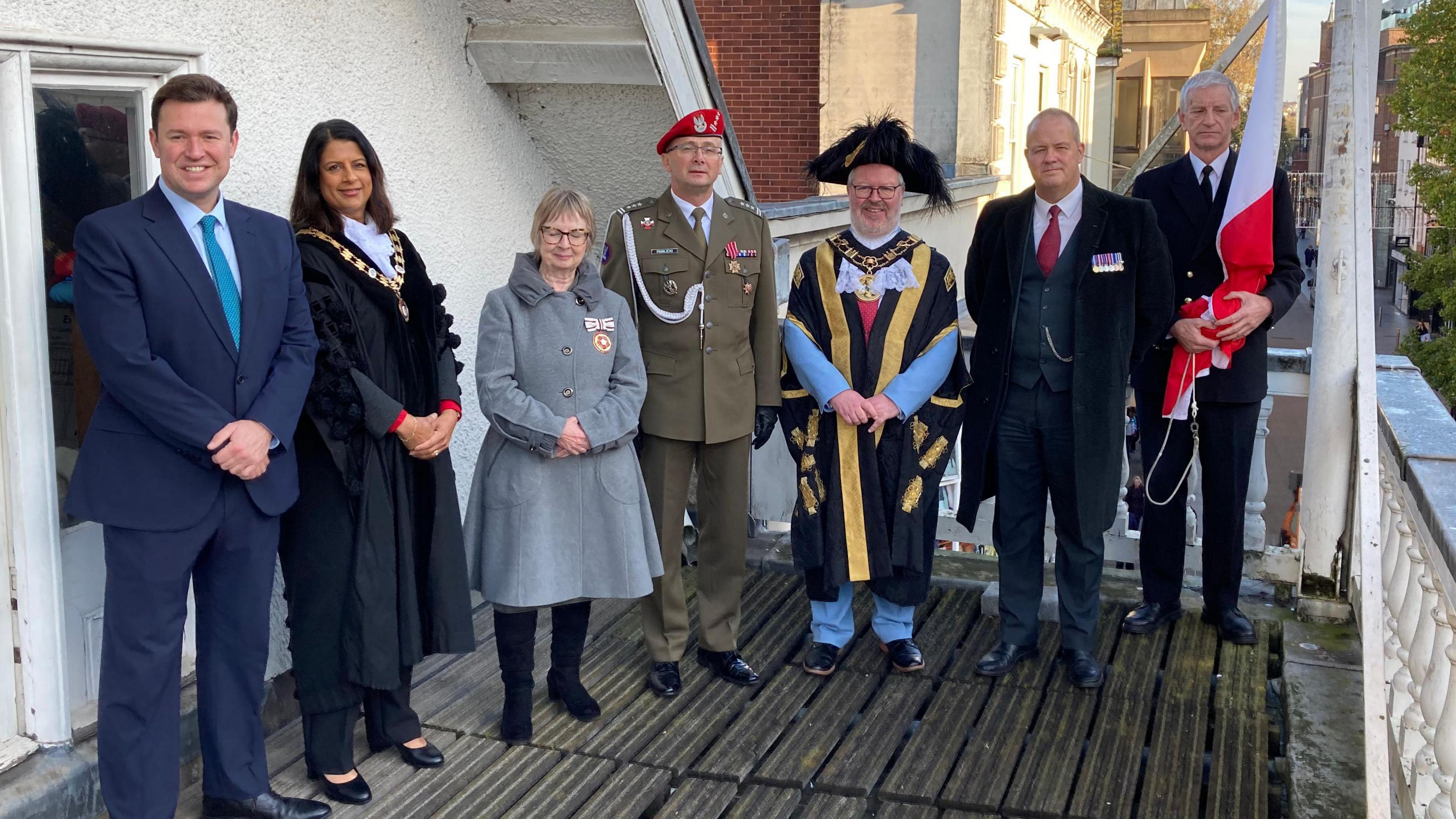
A Polish flag was raised at Exeter's Guildhall during a ceremony on Friday
- Published
A Polish squadron who helped defend Devon and Cornwall from Nazi bombing has been remembered at a service in Exeter.
Members of the Polish Air Force's 307 Squadron came to Britain during World War Two after their home country was invaded.
The squadron spent two years based at RAF Exeter, now Exeter Airport, and helped shoot down four German bombers during a Nazi raid on the city in May 1942.
The Polish flag was raised during a ceremony on Friday at Exeter's Guildhall to pay homage to the squadron who many said "saved the city".
The efforts of the airmen are marked annually with the help of the 307 Squadron Project, a charitable organisation that promotes and researches the squadron, who were also known as the "Lwow Eagle Owls".
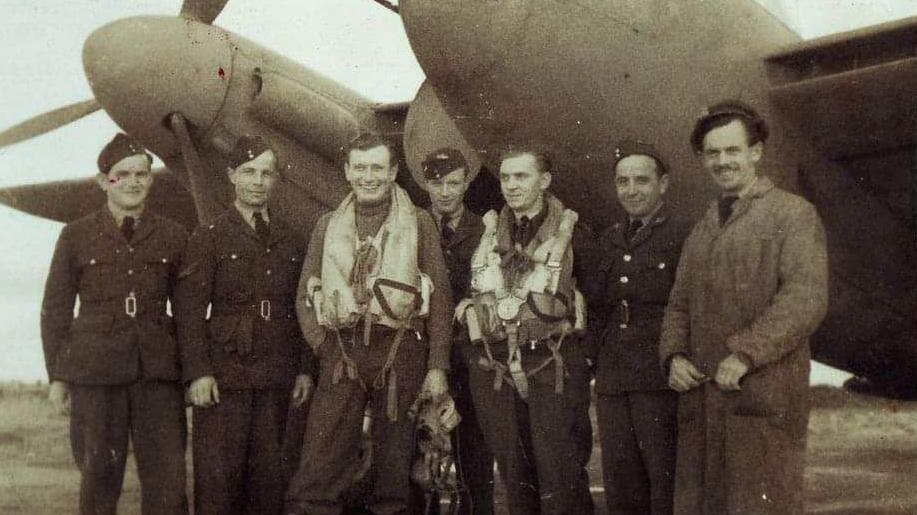
The 307 Squadron shot down four German bombers during the Exeter Blitz in 1942
Michael Parrott, a co-founder of the project, said the squadron's main success was during the Exeter Blitz on 3 and 4 May 1942, which saw 40 German Junker-88 aircraft drop a series bombs on the city.
During the raid, which lasted for about one hour and 15 minutes, 156 people were killed and a number of buildings were badly damaged.
Exeter was among five cities targeted in a series of retaliatory strikes in 1942 by Adolf Hitler as part of the Baedeker Raids, external, named after a popular German guide book to Britain. The other cities included Bath, Norwich, Canterbury and York.
Mr Parrott said: "After Lubeck, a beautiful city with no real military significance was bombed, Hitler was so enraged he chose five British cities for being beautiful architectural cities to be bombed."
'City's guardian angels'
Using Beaufighters, airmen from the squadron were able to shoot down four of the German planes.
Mr Parrott said the squadron only had four Beaufighters available on the night following a spell of crashes caused by engine failures and personnel being killed.
He said while many lives and buildings were lost during the raid, the Polish airmen stopped Exeter being "totally destroyed".
"The mayor described the 307 squadron afterwards as the city's guardian angels," Mr Parrott said.
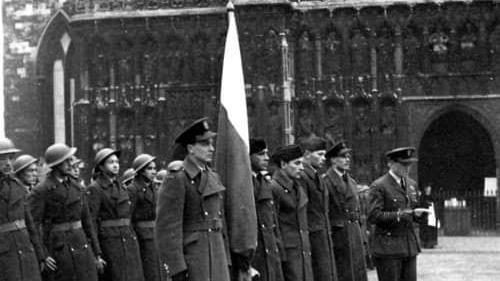
A Polish flag was presented to Exeter on 15 November 1942 by the 307 Squadron
On 15 November 1942, the squadron presented the city with a Polish flag during a ceremony outside Exeter Cathedral.
The flag was to be kept in the Guildhall so people in the city were aware of the 307 Squadron's work during the war.
"Unfortunately, at some point that flag was mislaid," Mr Parrott said.
"But since 2012, a new Polish flag has been raised annually on 15 November."
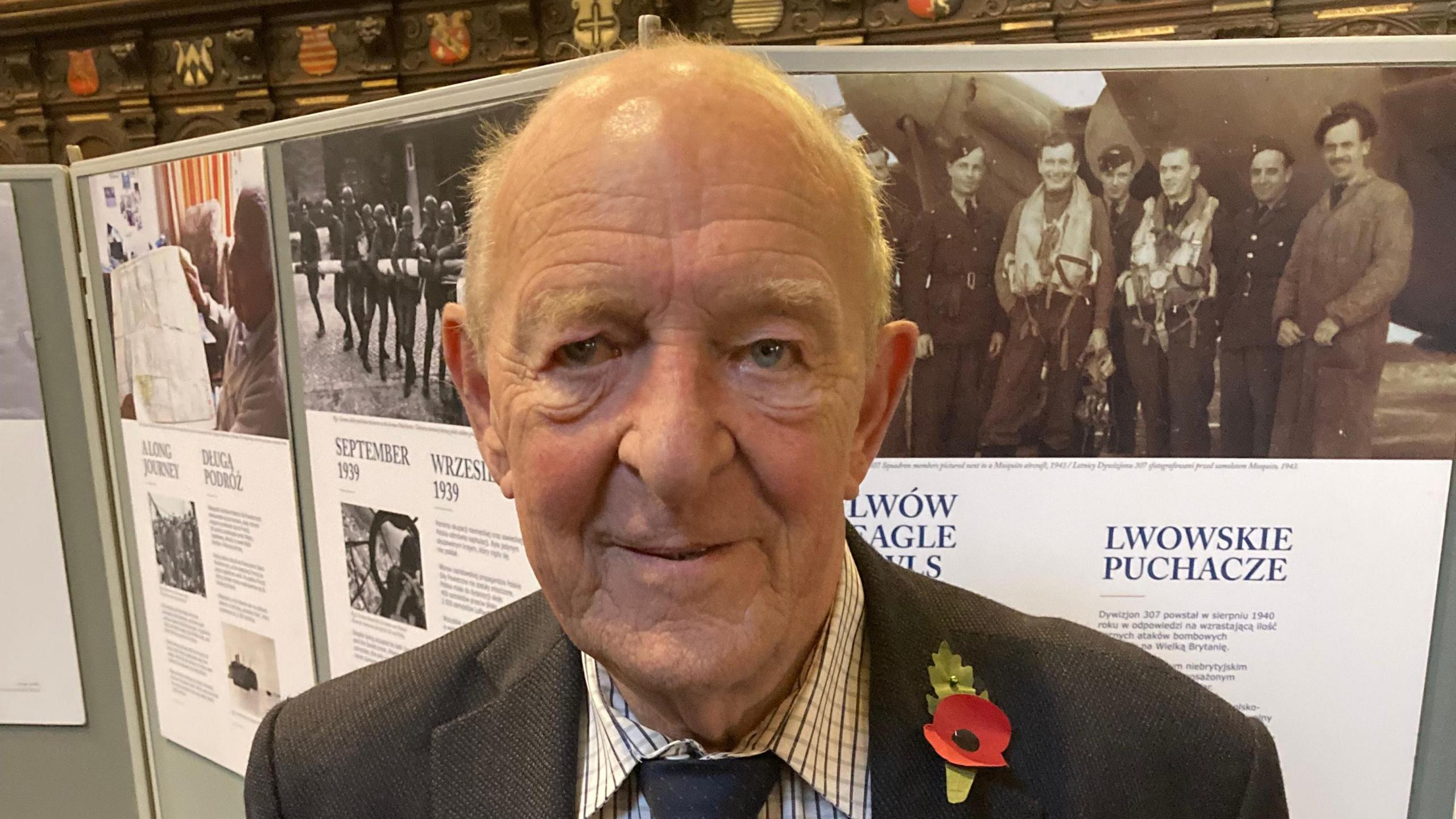
Jan Illaszewicz's father Wladek shot down two of the German bombers during the Exeter Blitz
Relatives of some of the airmen came to Exeter to commemorate the squadron during the service on Friday, which featured the Polish national anthem.
Among those who attended was Jan Illaszewicz, whose father Wladek managed to shoot down two of the German aircraft during the Exeter Blitz.
Mr Illaszewicz, whose father married his mother after meeting her in Devon before he was killed in the war before his birth, said he was "immensely proud" of him.
"I was brought up in Exeter, so Exeter has fond memories for me," he said.
"But to be here and see the service, I'm immensely grateful for that."
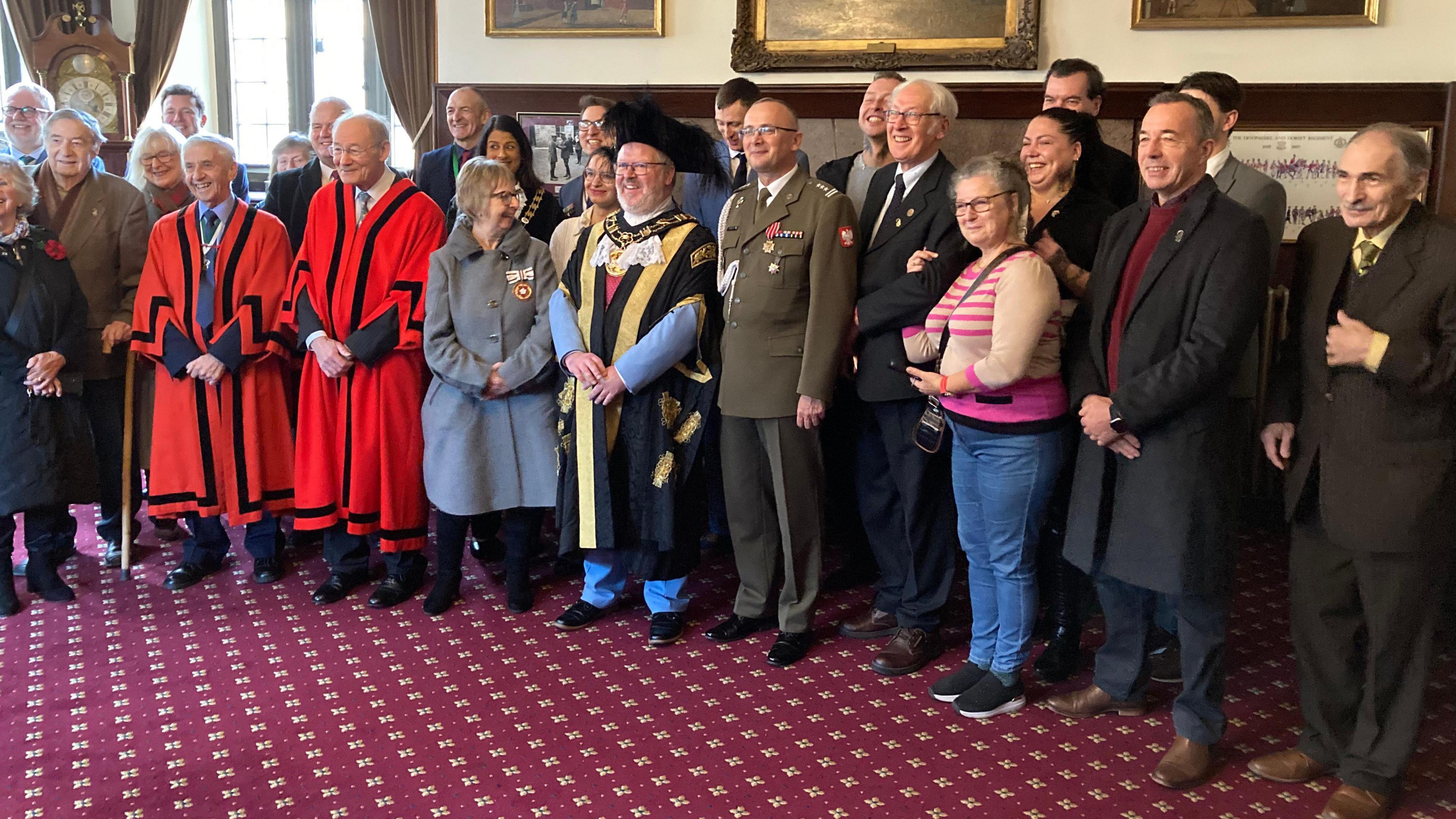
People from across the UK and Poland came to the flag-raising service at Exeter's Guildhall
Andrzej Michalski, one of the 307 Squadron Project founders and whose great-uncle Leon was one of the airmen, said he was very proud on what was a "very important day".
"This is very emotional when we meet the relatives," he said.
"We feel like a big 307 Squadron family and the atmosphere here is amazing."
Mr Michalski's cousin Agata Koralewska also attended Friday's service and said it was rewarding to see the squadron's work commemorated.
"The memory of them is still alive in the city and their role in defending Exeter is recognised today," she said.
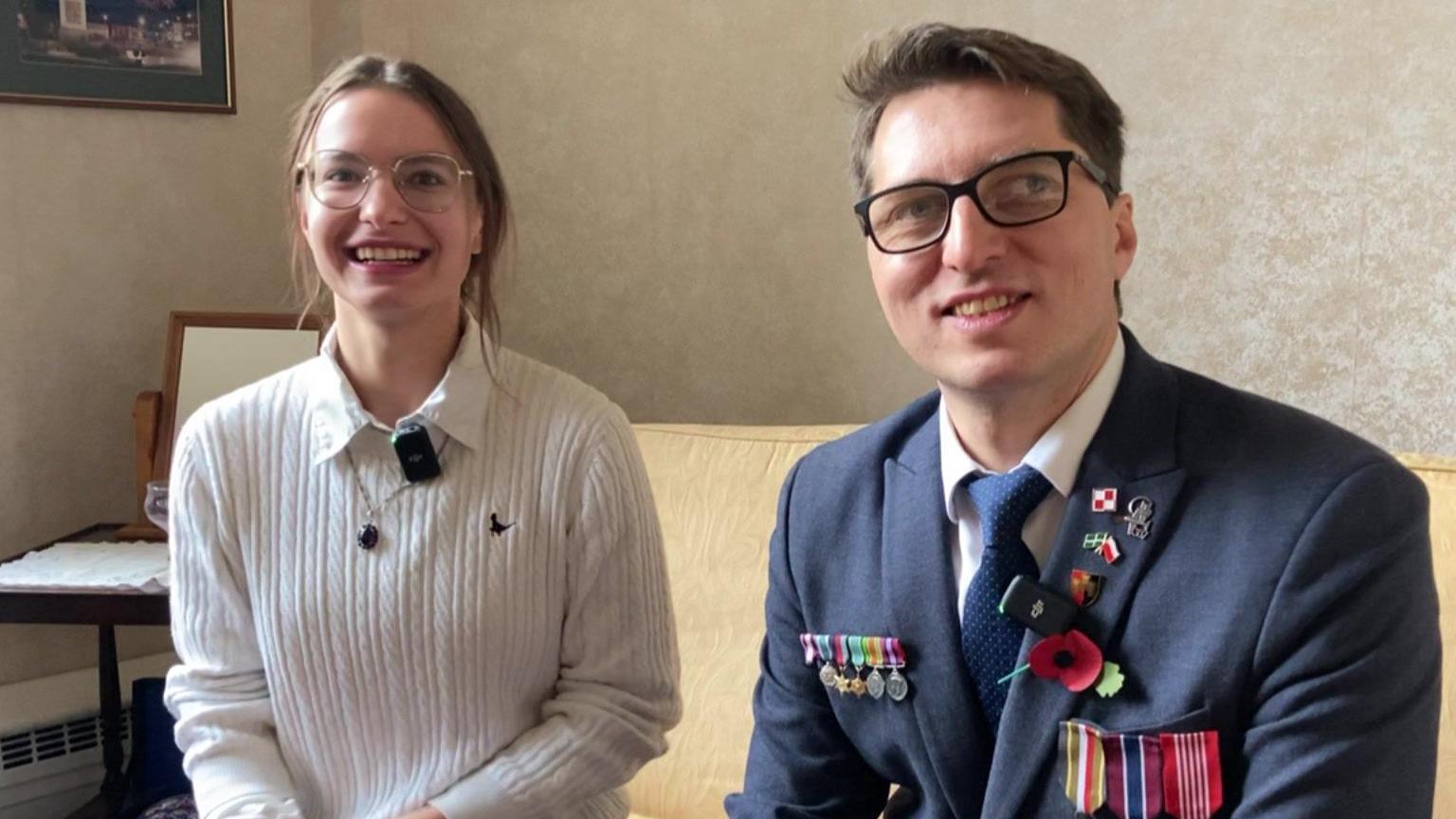
Agata Koralewska (left) and Andrzej Michalski (right) were commemorating their great uncle Leon Michalski, who was part of the 307 Squadron
Ms Koralewska said looking back at the 307 Squadron's efforts was important, especially with conflicts happening in the world today in Ukraine and the Middle East.
"It is very important to remember history as it helps us not to repeat our mistakes and build common unity for peace," she said.
Exeter Lord Mayor Councillor Kevin Mitchell said the city needed to remember the sacrifice of the 307 Squadron.
"The Eagle Owls came out and saved our city and buildings like the Guildhall wouldn't be here now without the efforts of those airmen," he said.
"We are eternally grateful for everything that they did."
Follow BBC Devon on X, external, Facebook, external and Instagram, external. Send your story ideas to spotlight@bbc.co.uk, external.
Related topics
- Published10 November 2024
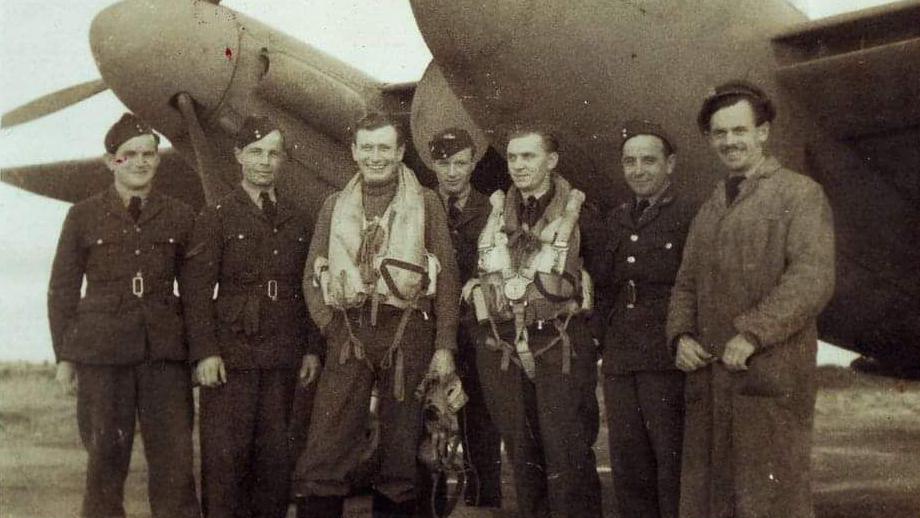
- Published26 April 2022
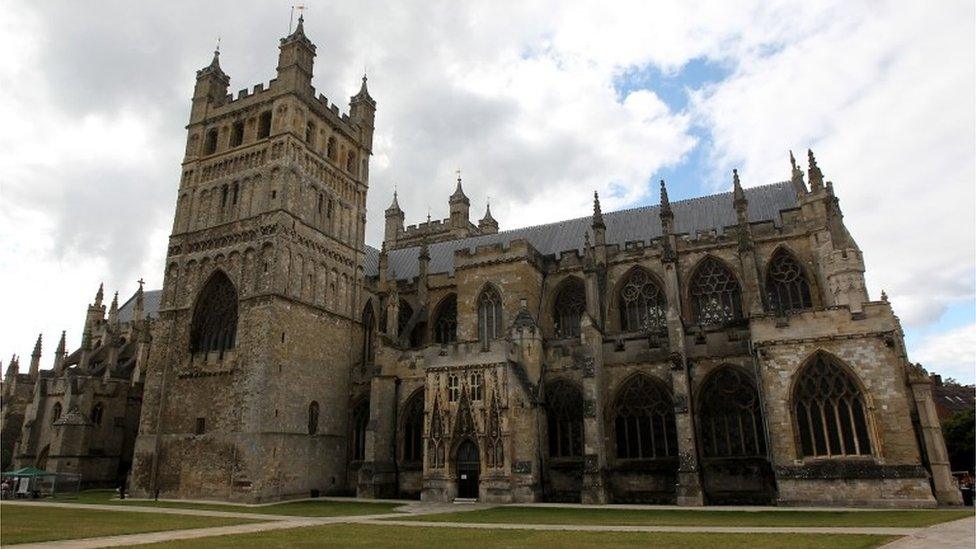
- Published5 May 2012